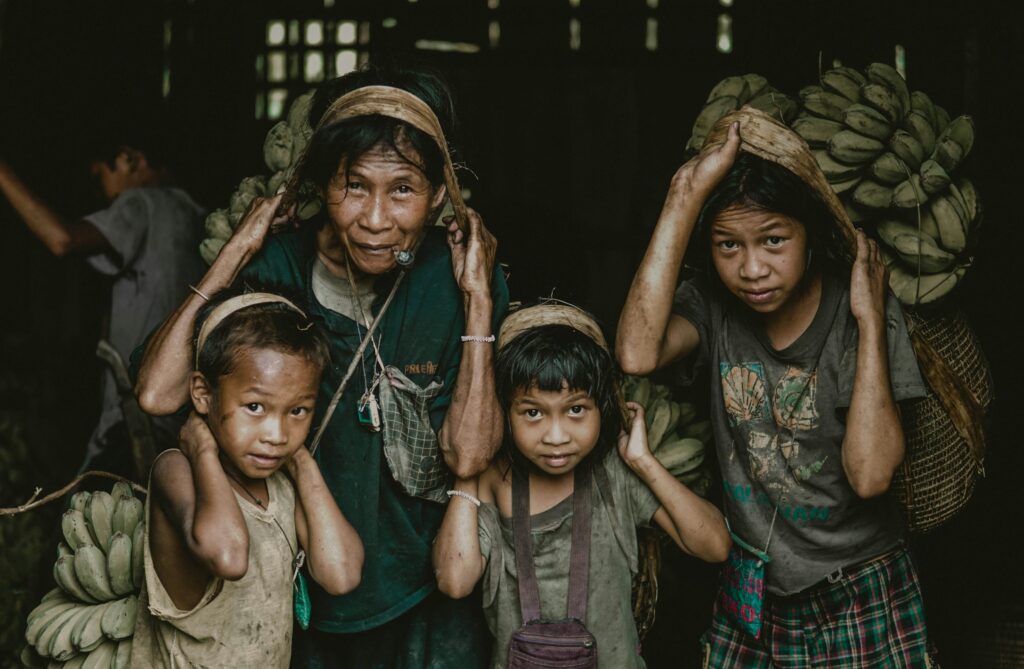The city of Nogales is split into two, divided by the USA-Mexico border. Both parts of the city are culturally very similar and geographically the same; the same agricultural products can be grown and achieve similar yield either side of the border. Yet, the income inequality between the north and south of the city is stark. To the north, in the world’s largest economy, the average household income surpasses $30,000. To the south, it is only a third of that. So, what constraints does the southern part of Nogales have to becoming more prosperous, and could the answer help us move towards a solution to eradicating poverty?
Classical economists list geography, culture and ignorance as three main factors that inhibit economic prosperity. Yet, the case study of Nogales disproves all three – the local authorities in southern Nogales are not ignorant to the technologies to the North, and both sectors of the city are culturally and geographically similar. Therefore, there must be another answer to my initial question. What constrains the south and what allows the north to be prosperous is the political and economic institutions in either country.
The role of a political institution is to provide incentives to work, save and innovate, to allow competition through preventing monopolies, and to impose the rule of law. An inclusive political institution, as in America, is one that is sufficiently centralised and pluralistic – political power is distributed broadly; US citizens are able to vote democratically to remove and elect their government officials. This democratic process creates stability and a trust in these institutions, and the firm imposition of the rule of law by the Government leads to both increased domestic investment and FDI. An extractive political institution – political institutions in Mexico are more extractive than those in the USA – is one that extracts from one subset of society to benefit another. For example, the dedazo in Mexico – used throughout the 20th century – allowed presidents to nominate their successors. The narrow and more absolutist distribution of political power in this example allowed the societal elite to maintain their power and provided no incentive to improve the institutions within the country or to firmly impose the rule of law.
This is important due to the intrinsic link between political and economic institutions. Inclusive political institutions forge inclusive economic institutions and vice versa. An inclusive economic institution is one that incentivises and promotes growth through secure property rights, low barriers of entry for firms and a labour market free to choose their occupation. Crucially, equality of opportunity for growth redistributes power and income away from the political elite. Thus, the elite in extractive political institutions, such as Mexico, will choose to forge extractive economic institutions, with no incentives and the expropriation of additional output, to maintain their influence, despite these being anaemic for growth. This explains the difference between the north and south of Nogales; the political and therefore the economic institutions either side of the border vary significantly.
Economic growth can still be achieved under extractive economic institutions. For example, during the slave trade, firm property rights were given to landowners in the Caribbean, who used slaves to produce sugar and cotton which could be sold internationally. However, under these institutions, efficiency was not maximised as slaves could not choose a profession best suited to their skills, and there was no incentive to innovate. Thus, this growth only existed in the short-term and did not have a positive impact on the standard of living or level of poverty in these countries.
Economic development must be accompanied by a sustained period of economic growth, which is only possible under inclusive political and economic institutions. Therefore, to eradicate poverty, impoverished nations must adopt these inclusive institutions.
However, often due to historical factors, this is not a simple solution. Sub-Saharan Africa, where 35% of the population live in extreme poverty, is still defined by a legacy of colonialism. Colonial rule inherently led to the formation of extractive economic institutions – colonisers extracted resources and money from the colony for their own benefit. Despite independence movements across the region, these extractive institutions remained. Post-independence governments served only to intensify the constraints on economic growth. For example, in modern-day Democratic Republic of Congo, the colonial legacy remains particularly prevalent. Under Belgian rule, a polity, Congo, was created, consisting of several different pre-colonial states and societies of which there was no centralised control. Post-independence, in the 1960s, the government had to appeal to foreign assistance to prevent two provinces, Katanga and Kasai, from seceding, such was its lack of authority. The extractive political and economic institutions that existed under colonial rule were reproduced, due to the lack of centralisation, and the DRC remains poor today due to a complete lack of the incentives that underpin a prosperous society. Power remains absolute and in the hands of only the political elite, who have no reason to enforce strict property rights or to provide basic public services. They have no incentive to lift the population from poverty, as this would only re-distribute their power and wealth to the masses. Centralisation, needed to achieve inclusive political institutions, will never be achieved, as this would lead to the emergence of political opposition, again diminishing the power of these elites.
Poverty will never be eradicated as, despite the presence of a viable solution – inclusive political and economic institutions – the composition of the poorest countries in the world, where political and economic power is held by a narrow elite, ensures this inclusivity will never be reached. Economic prosperity in these countries contradicts the ideals of the ruling elite, who have no incentive to promote sustainable growth or to eliminate poverty, and who act only in their own self-interest.



